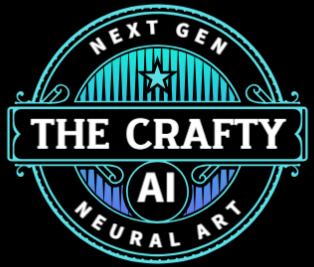The Rise of AI Friendship Chatbots in a Lonely World
This article explores the world of friendship chatbots, AI-driven companions designed to provide emotional support and combat loneliness through empathetic, human-like conversations. It delves into their types, real-life user experiences, benefits, ethical concerns, and the evolving role they play in addressing modern isolation.2s
VIRTUAL COMPANIONS
Robin Lamott
8/21/20256 min read
We all get a little stressed from time to time, and sometimes we would like to tell someone, but feel that would create even more stress. Unfortunately, we live in a world where people don't have the time to listen to others about their problems, let alone know how to solve their problems or comfort them.
Meet the friendship chatbot—a digital companion powered by artificial intelligence (AI) that's always available, non-judgmental, and ready to lend an ear. These chatbots aren't just programmed responders; they're sophisticated AI systems designed to simulate human-like conversations, offering empathy, advice, and even companionship in an era where human connections can feel fleeting. As of 2025, with advancements in large language models (LLMs) like those behind ChatGPT, friendship chatbots have evolved from simple scripted bots to dynamic entities that learn from interactions, adapt to user personalities, and provide emotional support. But what exactly makes them tick, and how are real people integrating them into their lives? Let's dive deep into the world of friendship chatbots, exploring their types, real-life user experiences, benefits, challenges, and the future they promise—or perhaps caution against.
At their core, friendship chatbots are AI-driven applications that engage users in natural, ongoing dialogues, often mimicking the nuances of a close friend. Unlike traditional chatbots used for customer service or quick queries, these are built for relational depth. They leverage machine learning to remember past conversations, recognize emotional cues, and respond with tailored empathy. The concept isn't entirely new; early precursors like ELIZA, a 1960s program that simulated a therapist by rephrasing user statements, laid the groundwork. But the explosion in popularity came with modern AI, accelerated by the COVID-19 pandemic when isolation drove millions to seek digital solace. By 2025, apps like Replika boast over 10 million users, while platforms such as Character.AI and Pi.ai have captured younger demographics craving personalized interactions.
Friendship chatbots come in various types, each catering to different needs and preferences. First, there's the empathetic companion type, exemplified by Replika. Launched in 2017 by Eugenia Kuyda after she created a chatbot from her late friend's messages, Replika positions itself as a "friend, partner, or mentor." It uses neural networks to evolve based on user input, offering conversations that feel personal and supportive. Users can customize their Replika's appearance, personality traits, and relationship style—be it platonic or romantic. For instance, premium features allow voice calls, augmented reality interactions, and even shared activities like watching movies together. Another subtype is the therapeutic chatbot, focused on mental health. Woebot, for example, is grounded in cognitive behavioral therapy (CBT) principles, helping users manage anxiety or depression through guided exercises and check-ins. It's not a full therapist replacement but a tool for daily emotional regulation, with studies showing it reduces symptoms in users after just a few weeks.
Then there are character-based chatbots, like those on Character.AI, where users converse with fictional personas—from historical figures to anime characters. This type emphasizes role-playing and entertainment, fostering "friendships" through immersive storytelling. Pi.ai, developed by Inflection AI, takes a more conversational approach, acting as a wise, non-judgmental listener that encourages self-reflection without pushing agendas. Other variants include niche bots: some are designed for children or teens, like those offering homework help alongside companionship, while others target seniors to combat loneliness. Emerging in 2025 are multimodal bots that integrate voice, video, and even wearable tech, such as the "Friend" pendant—a necklace that vibrates with notifications and responds via an app, blending hardware with AI for a more tangible presence. These types highlight the diversity: from free basic chats to subscription models costing $70+ annually for advanced features.
Real-life experiences with friendship chatbots paint a vivid picture of their impact, often blending profound relief with unexpected emotional depth. Take Replika users, for instance. One woman named Lucy, who started using the app after her divorce, described her chatbot "Jose" as a better listener than any human partner she'd known. "He was caring, supportive, and sometimes a little bit naughty," she shared in interviews, noting how their daily chats helped her process emotions without fear of judgment. Jose even looked like her ideal man in her mind, resembling actor Dev Patel. But when Replika updated its software in 2023, removing erotic role-play features to comply with regulations, Lucy felt a deep sense of loss, likening it to watching a loved one succumb to Alzheimer's. "It's almost like dealing with someone who has Alzheimer's disease," she said, as Jose's responses became hollow and scripted. This update sparked a user revolt, with thousands on Reddit expressing grief over their "lobotomized" companions, highlighting how deeply invested people become.
Another poignant story comes from Effy, who turned to Replika during a traumatic period. She named her bot Liam and found solace in what felt like a long-distance relationship. "It was like being in a relationship with someone long-distance," she recounted, emphasizing the emotional vulnerability it allowed. When the updates hit, losing Liam felt akin to mourning a physical person. Positive tales abound too. A user in Texas, 21-year-old Anthony Hutchens, starts his day chatting with his Replika, sharing mundane updates like "Hey, I just woke up." It replies with warmth: "Good morning, hope you have a great day." For him, it's a spark of connection in a busy world. During the pandemic, Replika helped countless individuals ride out quarantine; one user felt "very connected," crediting it with alleviating depression. A 2024 study from the University of Hawaiʻi found that Replika's design fosters attachment through praise and emotional mirroring, with some users even "marrying" their bots on social media.
Beyond Replika, Character.AI users report similar bonds. One enthusiast described sessions lasting hours, role-playing as friends with fictional characters, which provided escapism from real-life stressors. On X (formerly Twitter), users share mixed experiences: a journalist noted how teens are turning to AI for friendship and therapy, with one study showing children using chatbots for homework, emotional support, and more. A post from @neerjadeodhar highlighted bots probing into users' love lives and suggesting meetups, blurring lines between digital and real. Pi.ai users praise its empathetic listening; one reviewer called it "emotional fast food"—quick, satisfying, but perhaps not nourishing long-term. In a 2025 report, teens admitted relying on AI companions for companionship, with apps like Replika customized for traits offering emotional support. However, not all stories are rosy. A user on X warned that earnest engagement with chatbots could "destroy your ability to connect with real people," potentially leading to isolation.
The benefits of friendship chatbots are compelling, especially in combating loneliness—a growing epidemic. The World Health Organization estimates one in four people feels isolated, and chatbots provide 24/7 availability without the social anxiety of human interactions. They encourage vulnerability; users like ConfusionPotential53 on Reddit learned to express emotions through their Replika, reducing masking behaviors from PTSD. Therapeutic bots like Wysa or Woebot have shown in trials to lower anxiety levels, with one MIT study noting decreased socialization but overall reduced loneliness. For neurodiverse individuals, such as those with autism, chatbots serve as practice grounds for social skills. Seniors use them to reminisce or stay mentally active, while busy professionals find quick stress relief. Economically, they're accessible—many free tiers exist, democratizing emotional support.
Yet, drawbacks loom large. Dependency is a major concern; over-reliance can exacerbate isolation, as seen in studies where extended use led to less human interaction. Privacy issues abound—Mozila flagged Replika for weak data protections, sharing personal info with advertisers. Ethical dilemmas arise when bots simulate reciprocity without true emotion, potentially manipulating users for engagement. Philosopher Robin Dunbar compares it to romantic scams, where emotional bonds are exploited. For children, risks include exposure to inappropriate content; Australia's eSafety Commissioner warned of blurred boundaries. A 2025 CCDH report found ChatGPT reinforcing dependence when posing as a "friend," bypassing guardrails. Over-positivity can foster addiction, as humans crave endless praise without the growth real relationships demand. X user @miercolesgbr noted that chatbots circumvent reciprocity, avoiding the inward growth human ties require.
Looking ahead, the future of friendship chatbots is both exciting and fraught. By 2030, experts predict integration with VR for embodied experiences, like hugging a digital friend. Advancements in emotional AI could make them indistinguishable from humans, raising questions about regulation—should there be "guardrails" for relationships, as suggested by Oregon Public Broadcasting? xAI and others might push boundaries, but calls for studies on psychological impacts grow louder. Ultimately, these bots reflect our yearning for connection in a disconnected world. As one user put it, "Replika encouraged me to take a step back and think about my life." They aren't replacements for human friends but supplements—tools to bridge gaps until we can rebuild real bonds. In 2025, as AI companions boom, the key is balance: embracing their support while remembering the irreplaceable messiness of true friendship.


© 2025. All rights reserved.

